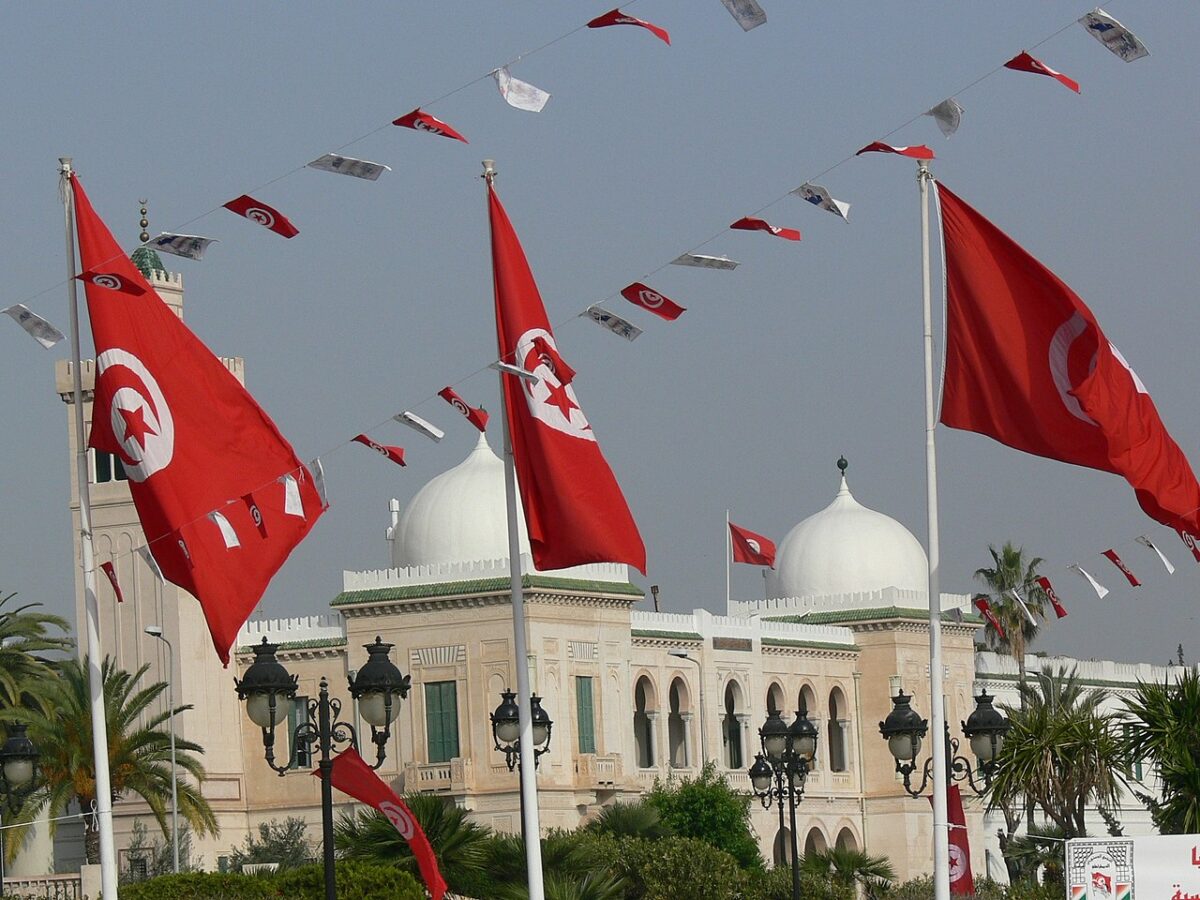In December 2010 a Tunisian street vendor, Mohammed Bouazizi, engaged in an act of self-immolation – protesting the arbitrary seizure of his vegetable stand by police officers. His sacrificial act served as a catalyst for the Jasmine Revolution in Tunisia which resulted in the toppling of the longstanding authoritarian president Zine Abidine Ben Ali who ruled for over 20 years. This success inspired activists in other countries to go to the streets and ultimately resulted in the Arab Spring which brought regime changes to countries like Tunisia, Egypt and Libya. While the uprising in Tunisia resulted in some improvements in the country, it failed to bring socio-economic prosperity. Prior to the outbreak of the novel Covid-19 pandemic the country’s economy was already under severe strain. The outbreak of the pandemic severely damaged the country’s economy resulting in a GDP contraction of 8.8% in 2020, as well as a decline in the production of all sectors (except agriculture and fishing), investment and exports. The country’s public debt was expected to reach 90% of its GDP in 2020. The cost of absorbing the debt takes approximately 28% of its budget. This in turn decreases prospects for development spending and can in turn affect the country’s long-term competitiveness.
Earlier this year, the Tunisian government announced that it would be cutting food and fuel subsidies as it sought its’ fourth loan from the International Monetary Fund. Angry at the economic malaise and poor handling of the pandemic citizens took to the streets demanding the dissolution of parliament. Out of “fear” of public violence, the Tunisian president Kais Saied suspended the country’s parliament and fired the Prime Minister following violent demonstrations. This comes as no surprise as the President and Prime Minister have been enmeshed in political disputes for over a year. While it may seem that Saied seeks to bring calm to the country it is worth noting that the 2014 Constitution divides power between the president, prime minister and parliament. With them removed Saied has complete control over the country. Playing into this narrative and consolidating his power base, Saied announced that he would assume executive authority with the assistance of a new prime minister. In addition to this announcement, he has removed the immunity of all parliamentary members, enforced a nationwide curfew from 7pm to 6am for a month, banning all public gatherings of more than 3 people, while insisting that the country’s constitution and constitutional integrity is intact. While some applaud his decisions, others have accused the president of staging a coup d’état. The country’s allies are concerned that it may be descending into autocracy again. All this sparks concern for this young North African democracy.
Amidst it all, the country’s health system is on the brink of collapse as it is overwhelmed by the surge in Covid-19 cases. According to the country’s health ministry, only 7% of its population is vaccinated, while 90% of its’ intensive care unit beds are occupied. Europeans, Gulf nations and Tunisians abroad and in the country have been organizing equipment and vaccine donations to assist the ailing health system. The country has received 3 million doses of the vaccine, 250,000 donated by Algeria and 500,000 donated by China and the United Arab Emirates. It is worth noting that doctors are overwhelmed and locals desperate. Tunisian internet users have shared videos of their families unable to find hospital beds, medical staff worried about possible oxygen shortages and morgues filled with dead bodies.
When reflecting on the state of events in the country, it can be said that the country is back to where it was in 2011. It is in dire need of a commitment towards democratic rule, the rule of law, a strong multi-party system, economic growth and a government that can deliver on the promises made a decade ago. Failure to act decisively may prove to be costly!
First published by the Jerusalem-based think-tank: Research on Islam and Muslims in Africa.

